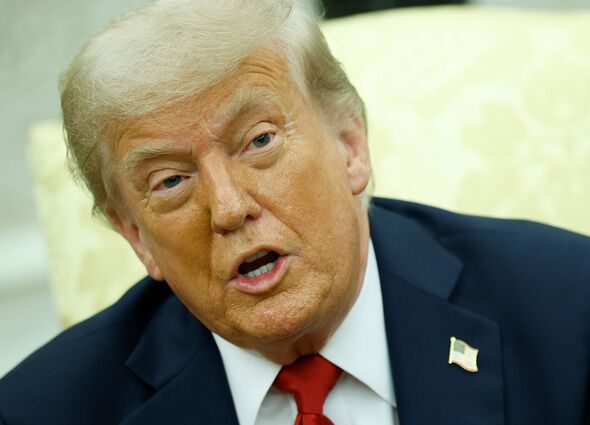Zelensky Seeks Weapons to Target Moscow Amid U.S. Support

Ukrainian President Volodymyr Zelensky has expressed a strong desire to target key Russian cities, including Moscow and St. Petersburg, in a recent communication with former U.S. President Donald Trump. This conversation took place on July 4, 2023, just days before the U.S. government announced plans to enhance its collaboration with NATO amid ongoing conflicts in Ukraine.
During the call, Trump reportedly encouraged Zelensky to take decisive action against Russia, asking, “Volodymyr, can you hit Moscow?… Can you hit St. Petersburg too?” Zelensky responded affirmatively, stating, “Absolutely. We can if you give us the weapons.” This exchange highlights Ukraine’s urgent need for advanced weaponry to bolster its military capabilities against Russia.
Following this conversation, U.S. aides provided Kyiv with a list of potential long-range strike systems available through third-party transfers. However, Trump remains cautious regarding the provision of Tomahawk missiles, which have a range capable of striking targets almost 994 miles away. The hesitance indicates the complexities involved in U.S. military support, even as Trump expresses a newfound willingness to pressure Russia into negotiations.
U.S. Military Assistance and Tensions with Russia
Trump’s support for Ukraine has developed following a meeting with NATO Secretary General Mark Rutte at the White House, where they discussed strategies for improving U.S. assistance to Ukraine. The meeting coincides with heightened tensions in the region, particularly after four individuals were killed in Ukraine’s Sumy region due to Russian airstrikes on the same day.
When questioned by reporters about his willingness to escalate military responses if Russia intensifies its attacks, Trump appeared taken aback. He responded defensively, stating, “Don’t ask me a question like that,” reflecting his frustration over the ongoing conflict and the stalled progress towards a peace agreement with Russian President Vladimir Putin.
During the press conference, Trump confirmed a deal to manufacture and supply weapons to NATO allies, which will then be provided to Ukraine. “We made a deal today where we are going to be sending them weapons and they’re gonna be paying for them,” Trump stated. He emphasized that the U.S. would not incur costs but would facilitate production, highlighting the financial aspects of U.S. military support in the current conflict.
Trump characterized the ongoing situation in Ukraine as a “Biden war,” distancing his administration from the current geopolitical challenges while expressing frustration with the lack of progress in negotiations with Russia. His remarks come as the humanitarian crisis in Ukraine continues to worsen, with civilian casualties rising and hopes for a ceasefire diminishing.
The situation remains fluid as Ukraine seeks to strengthen its military position through international partnerships and support, while the U.S. navigates its role in the conflict. The complexities of international relations and military strategy in this high-stakes environment will continue to unfold as both nations grapple with the implications of their actions on the global stage.






